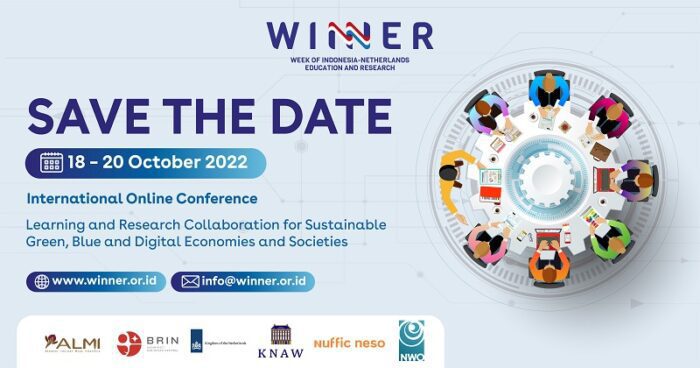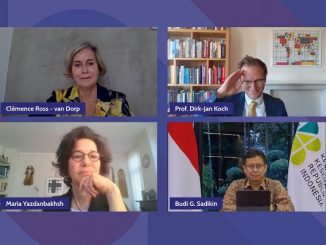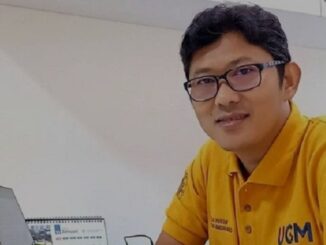
JAKARTA, KalderaNews.com – Biosecurity in animal husbandry and infection prevention and control in hospitals have a common goal: to protect animals and humans by reducing spread of unwanted microorganisms. ‘The current Covid-19 pandemic and antimicrobial resistance are just two examples-but there are many more’, say two organisers of a key session at the online WINNER Conference in October 2022.
The conference showcases collaboration in education and research in Indonesia and the Netherlands. This particular session highlights what has become known as the ‘One Health’ approach.
‘Antimicrobial resistance annually kills more than a million people worldwide’, states Juliëtte Severin, clinical microbiologist at the Erasmus University Medical Centre in Rotterdam. ‘It also takes a substantial toll in agriculture, economically and in terms of animal welfare’, adds Jaap Wagenaar, professor of Veterinary Health at Utrecht University.
RELATED TOPICS:
- WINNER 2021: Perkuat Kerjasama Pendidikan dan Penelitian Indonesia – Belanda
- Kepala BRIN: WINNER 2021 Jadi Platform Akselerasi Kolaborasi Riset Indonesia-Belanda
- Academic freedom under pressure in Indonesia
Jaap Wagenaar (Utrecht University) is involved in several NWO en ZonMw research projects, including ‘Containment of antimicrobial resistance: towards a sustainable poultry production chain in Indonesia’ via Cooperation Indonesia – the Netherlands (Merian Fund, call ‘Food, Water and Rule of Law’) and Hestia – Impulse for Refugees in Science.
The ‘One Health’ approach states that human, animal and environmental health are closely interlinked, and need to be addressed in an integrated manner. This concept has officially been adopted as a theme by the World Health Organization in 2017 and aligns with several of the Sustainable Development Goals of the UN.
“We are all equal partners. As Dutch researchers, we learn a lot about how to develop trust and openness within the agricultural sector, and how to build farmers’ intrinsic motivation to change,” Jaap Wagenaar, professor of Veterinary Health at Utrecht University
The two domains are closely linked: resistant microbial strains can pass from one sector to the other, also via the environment. This has been the case with several notorious microbes, including MRSA and E. coli. ‘The human health and agricultural sectors are increasingly aware of this problem. But they still lack a lot of the knowledge and skills that are needed to tackle this problem together, and at a global scale’, says Severin.
Together, Severin and Wagenaar are organising a session about this issue at the annual WINNER Conference (see text box). They also work closely together in their research. ‘In fact, we both just returned from visit to Indonesia, where we got together with our counterparts to discuss our joint progress’, says Wagenaar.
Reducing antibiotic use
Their session at the WINNER Conference addresses what has become known as the ‘One Health’ approach. This concept, officially adopted as a theme by the World Health Organization in 2017, states that human, animal and environmental health are closely interlinked, and need to be addressed in an integrated manner.
This also aligns with several of the Sustainable Development Goals of the UN. ‘Still, this is a theme that needs a lot of work worldwide’, says Severin. ‘We need more knowledge and practical experience, but also awareness raising.’
Prudent use of antibiotics is an important component of efforts to tackle the emergence of antimicrobial resistance. In the Netherlands, this has historically been a focus in human health, but in the last decade there has been a spectacular reduction in the use of antibiotics in agriculture.

Here, the use of antibiotics is subject to strict rules and regulations. ‘In Indonesia, however, farmers can order antibiotics without restrictions in their local agricultural shops’, says Wagenaar. ‘There, the challenge lies in triggering farmers’ intrinsic motivation to make changes in their daily practice. Improved biosecurity can play a role in this.’
“Research focuses for instance on the scale, nature and distribution of antimicrobial resistance and on the use of antibiotics, both in human health and in agriculture. Results indicate that awareness of the problem is growing in Indonesia as well,” said Juliëtte Severin (clinical microbiologist, Erasmus University Medical Centre Rotterdam
Trust and openness
Wagenaar, Severin and colleagues in Indonesia work together on building knowledge and awareness around these issues. ‘This works both ways’, says Wagenaar. ‘We are definitely not there just to bring knowledge. We are all equal partners.
As Dutch researchers, we learn a lot about how to develop trust and openness within the agricultural sector, and how to build farmers’ intrinsic motivation to change. These are really valuable lessons for us in the Netherlands, especially in light of the current controversy surrounding Dutch agriculture.’
The session at the WINNER Conference will address a wide range of research projects both in Indonesia and the Netherlands. ‘Research focuses for instance on the scale, nature and distribution of antimicrobial resistance’, says Severin, ‘and on the use of antibiotics, both in human health and in agriculture.
Results indicate that awareness of the problem is growing in Indonesia as well, perhaps primarily in hospitals, but increasingly among farmers as well.’
Social aspects
The Indonesian government has shown much interest in the topic, notes Wagenaar. ‘They promptly respond when there is evidence that certain practices are harmful, and that there are viable alternatives’, he says. ‘This underlines the importance of research and monitoring.’
Not just medical and agricultural scientists are involved in the projects, as both researchers emphasise. ‘The social sciences also play a major role’, says Wagenaar.
‘Why do people behave the way they do? What do they need to make effective changes in the long run? How can they be supported in these transitions? In the most recent project, colleagues in Antwerpen are helping us in this regard. In addition, colleagues in Calgary are contributing in the area of data management and modelling.’
Capacity building
Cooperation across sectors and country borders is vital in this context, is the main message of Severin and Wagenaar. ‘In particular, we advocate continuous cooperation with long-term horizons and funding’, specifies Wagenaar. ‘That is the only way to build trust and commitment. And this is where the WINNER programme has an added value.’
Severin also stresses the value of longer-term horizons and investment in trust, transparency and capacity building. ‘This, too, goes both ways’, she says. ‘One of my PhD supervisors was an Indonesian professor.
Now I am supervising two Indonesian researchers myself. They are now receiving training in the Netherlands, gaining insights into the Dutch research infrastructure and approaches and teaching us about theirs in return. When they return to Indonesia, they will be able to continue this exchange of knowledge and expertise.’
Fast change
The efforts have already led to concrete results, as both Severin and Wagenaar point out: the Indonesian government has recently introduced a ban on a class of antibiotics that are considered last-resort medicines for patients. ‘I never thought a ban could be implemented this fast’, says Wagenaar. Severin also expresses optimism: ‘People across all sectors are eagerly awaiting the results of new research. There’s openness, awareness and willingness to change.’
Join this session at the
*Jika merasa artikel ini bermanfaat, silakan dishare pada saudara, sahabat dan teman-temanmu





Leave a Reply